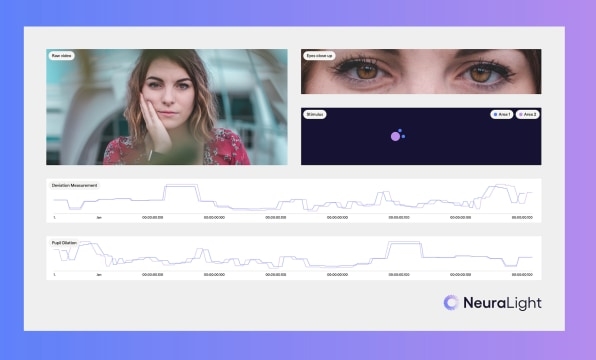NeuraLight is making neurological diagnostics more precise
In a medical landscape that’s full of precision drugs and detailed diagnoses, neurology is something of an outlier. Given how difficult it is to diagnose disorders of the nervous system, neurology has proven a particularly tricky branch of medicine. (Much of the public’s skepticism is understandable: Research suggests Parkinson’s, for example, has a 25% rate of misdiagnosis.)
A lack of objective tests and the highly subjective nature of available tools leads to imprecise and deferred diagnosis, resulting in late intervention, impaired patient care, and ineffective drug development.
Enter NeuraLight, a VC-backed startup that aims to digitize neurological evaluation and care. Cofounded by former Chorus.ai president Micha Breakstone, NeuraLight’s AI-driven platform integrates multiple digital markers to accelerate and improve drug development, monitoring, and precision care for patients with neurological disorders. The idea is that if you improve the diagnosis process, you can intervene earlier on, improving prognosis, and often, as in the case of relapsing-remitting MS, even changing the course of the disease.

“The unmet need in neurology of establishing objective and sensitive biomarkers is immense,” says Thomas Südhof, a professor at the Stanford University School of Medicine a member of NeuraLight’s Scientific Advisory Board. “NeuraLight’s approach holds real promise to address this need.”
To date, the company has raised over $30M from prominent VCs such as Koch Disruptive Technologies, Breyer Capital, Samsung Next, VSC, and Operator Partners, as well as angel investors including Instacart CEO Fidji Simo and and Lily Sarafan, cofounder of TheKey.

[Photo: courtesy of NeuraLight]
NeuraLight’s founders are repeat entrepreneurs (including both the cofounder of Chorus.ai that sold to ZoomInfo for $575m, and the founding CTO of Flatiron Health that sold to Roche for $2B) leading a 30-strong team, supported by renowned neurologists and two Nobel laureates as well as a stellar Scientific Advisory Board.
For Breakstone, the company’s mission isn’t just a business proposition; it’s personal. “After watching two of my grandparents battle with Alzheimer’s and Dementia, I began studying these diseases in depth, and it soon became clear to me that cures for these diseases are extremely hard to discover because they lack robust objective and sensitive measures,” he says. “That’s why we founded NeuraLight—to measure neurological disorders accurately and objectively, and bring precision medicine to neurology.”
Research spanning several decades and published in hundreds of peer-reviewed papers has established that oculometric markers—that is, biomarkers extracted from measuring micro-movements of the eye—can be used to diagnose and predict the progression of a wide range of neurological disorders. NeuraLight leverages proprietary Computer Vision and Deep Learning algorithms to simultaneously extract all relevant oculometric markers from facial videos captured with a standard webcam or smartphone.
These digital markers serve as a reliable proxy for currently used clinical endpoints, and will provide an accurate snapshot of a person’s neurological status, enabling pharmaceutical companies to introduce smart phenotyping, reduce misdiagnosis, and accurately and sensitively measure disease progression.
NeuraLight recently launched a trial in collaboration with publicly traded pharma company, NeuroSense. The goal of the trial is to establish whether NeuraLight can predict the progression of ALS using their platform. While official results have not yet been published, Breakstone says an initial analysis of NeuraLight’s measurements is extremely encouraging, and is in line with published literature.
“This will be a big step forward for us in establishing oculometrics as a sensitive and reliable biomarker for neurological disorders,” Breakstone says.
(40)


